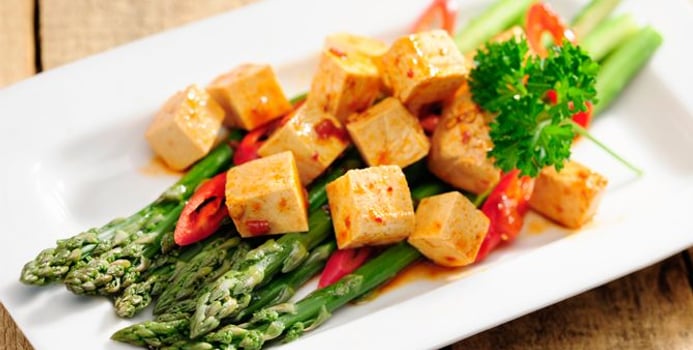A vegetarian diet can be perfectly healthy; in fact, a vegetarian or vegan diet can improve digestion and skin tone, give you more energy and help you lose weight. But many vegetarians and vegans don't realize that their diets could be lacking in vital nutrients, vitamins and minerals.
If you follow a vegetarian diet, you could be at risk of developing health problems including chronic fatigue, lowered immune response and even malnutrition. Here's how you can enhance a vegetarian diet with supplements to ensure proper nutrition.
1. Decide What Kind of Vegetarian You Should Be
Vegetarians have to pay special attention to nutrition to ensure they're getting adequate nutrients, vitamins and minerals. Before you ever begin a vegetarian diet, decide what sort of foods are acceptable to you. Many people become vegetarians for ethical reasons; some people choose to become vegans because they believe that using any animal products at all is wrong.
While a healthy vegan diet isn't impossible to maintain, a lacto-ovo vegetarian diet (which includes eggs and dairy products), is the easiest to maintain without sacrificing good health.
2. Do Your Nutritional Research
Once you've decided what sort of vegetarian diet plan you'd like to follow, it's time to do your nutritional research. Your body needs protein, carbohydrates, fat, fiber and a range of other nutrients, vitamins and minerals. Vegetarians are most vulnerable to deficiences of iron, calcium, protein, vitamin B12 and omega-3 fatty acids.
3. Make Sure You Get Enough Protein
It's not difficult to ingest adequate amounts of protein, even if you don't eat meat. Vary your diet, and make sure you get enough calories to maintain good health. Most adults need about 2,000 calories per day.
Here are some good sources of dietary protein for vegetarians:
- Beans
- Lentils
- Tofu
- Tempeh
- Chickpeas
Whole grains, leafy green vegetables, rice and corn are also sources of protein. Lacto-ovo vegetarians can take advantage of the protein found in milk, eggs and cheese. Those who desire a protein supplement can try adding whey powder to a fruit smoothie.
4. Get Your Vitamins
Iron, calcium and vitamin B12 are often lacking from vegetarian diets. Good dietary sources of iron include dried fruits, cashews, mushrooms and tofu. If you choose to take an iron supplement, take it with a vitamin C supplement as vitamin C aid in iron absorption.
Calcium is present in many green leafy vegetables such as kale, and is also found in fortified soy milk, fortified orange juice and fortified tofu. If you choose to take a calcium supplement, take it with a vitamin D supplement to aid in calcium absorption.
Many vegetarians also don't get enough vitamin B12. Some non-animal sources of vitamin B12 include nutritional yeast, fortified cereal and soy milk. If you don't eat dairy products, make sure you take a vitamin B12 supplement, or include nutritional yeast in your diet by sprinkling it on your food.
5. Don't Forget Your Omega-3 Fatty Acids
Your body needs omega-3 fatty acids; they're essential to cognitive and neural function, they're good for your eyesight, and they help keep your heart and muscles strong. Flaxseed oil, canola oil, tofu, soybeans and walnuts are good sources of omega-3 fatty acids.
If you follow a vegetarian diet plan, adhere to the steps above to ensure optimal nutrition for your body.



